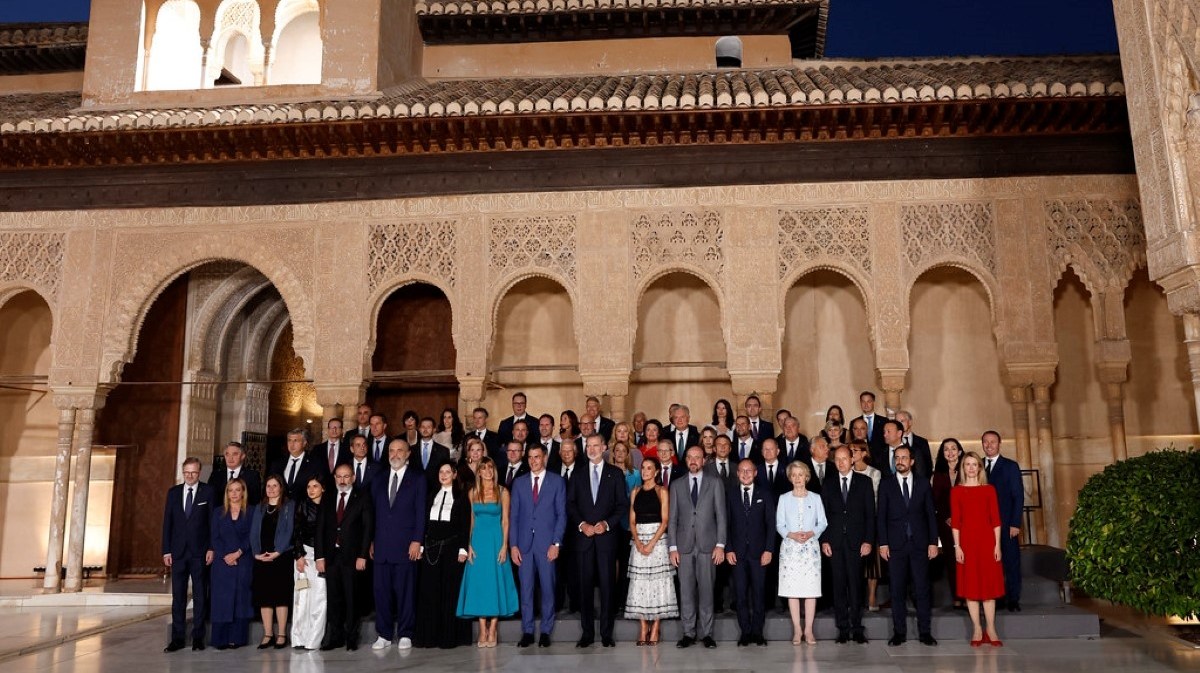We are navigating towards a new global order that is changing the face of globalisation and challenging global economic integration. And we are witnessing rapid technological progress, increasing asymmetries in economic dependencies and a widening gap in terms of competitiveness.
The greatest danger in times of turbulence is not turbulence; it is acting with yesterday’s logic
Turbulence or technological disruption, this quote from Peter Drucker, one of the most influential thinkers in management, is relevant in the current context. Boosting the competitiveness and autonomy of strategic sectors for prosperity is a political priority that will require agile approaches adapted to the new reality.
European strategic autonomy at the centre of the Granada Summit debate
In the framework of the Spanish Presidency of the Council of the European Union, two key meetings were held in Granada on 5 and 6 October. The first brought together the European Political Community, i.e. the leaders of the 27 EU countries and 17 neighbouring states such as the United Kingdom, Turkey, Switzerland and Ukraine, to discuss how to strengthen a resilient and geostrategic Europe.
The second, informal meeting of the European Council, focused on setting strategic priorities for the EU (2024-2029), especially with regard to open strategic autonomy.
“Resilient EU2030“is the Spanish Presidency’s vision, shared by the 27 Member States, to strengthen the EU’s resilience and competitiveness in key areas. In its contribution to the debate, the European Commission, in “Towards a more resilient, competitive and sustainable Europe”, highlights strategic areas to strengthen Europe’s global position and its strategic autonomy.
These include energy security, public and private investment, defence capabilities and building a sustainable and competitive economy, with a focus on technologies such as AI, quantum computing, the cloud and 5G.
Why is Strategic Autonomy more important than ever?
Europe has reacted decisively to a rapidly changing geopolitical and economic environment. The new reality requires us to strengthen our ability to protect Europe’s strategic interests
Europe is losing global economic relevance. According to data from the International Monetary Fund, the EU economy has gone from representing 25% of the global economy to 15% in less than three decades. And the trend is downward.
Loss of competitiveness impacts on strategic autonomy. When European companies are unable to compete effectively at the global level, dependencies on foreign imports and technology could undermine their ability to make independent strategic decisions. This could have implications for the economy, politics, technological development or national security.
Therefore, Open Strategic Autonomy is a priority for the Spanish Presidency in 2023. In particular, to enhance it in a way that allows for multilateral cooperation, and to act autonomously as needed.
The concept does not question free trade, a pillar that has been key to the economic and social progress of the European Union. It focuses on the key components of the supply value chain, where vulnerability is most critical, and on the need for reliable partners.
The term is not new, but its application beyond the traditional defence domain is. Digital autonomy is on its radar. Promoting approaches that boost Europe’s relevance in critical digital areas, such as connectivity networks, AI, edge-cloud computing, quantum computing or cybersecurity, is a matter of geostrategic relevance. So is ensuring continued access to the supply of critical technology components for the digital and green transition; and boosting the leadership of European technology companies in sectors such as telecommunications.
An industrial policy for a technology-based European competitiveness
Europe seeks to design an industrial policy adapted to the 21st century economy, focused on digital innovation and the dual transition towards a more digital and green economy and more autonomous in terms of strategic dependencies.
To this end, public policies must strengthen key sectors such as telecommunications. Telecommunications operators, as technology providers of connectivity networks and digital solutions, are at the forefront of today’s geopolitical and competitive challenges. The availability of “future-proof and ubiquitous” networks is a competitiveness factor.
It is essential that policy makers work together to promote an approach that recognises the strategic role of connectivity networks and improves the investment climate by incentivising private sector investment.
Specifically, policies should provide incentives for private investments in connectivity infrastructure and promote a more balanced development of the digital ecosystem.
These networks are the backbone that connects all sectors of the economy and society, boosting competitiveness and the well-being of citizens. And today, Europe is facing major challenges in the telecommunications sector.
From this perspective, at Telefónica we believe it is necessary to foster efficient market structures that guarantee an adequate return on investment; to promote mechanisms that guarantee the fair contribution of ecosystem agents to boost a responsible and efficient use of network resources and the sustainability of investments. Similarly, the key role of connectivity in driving the green transition must be recognised.
And finally, promoting the competitiveness of European industry based on a holistic approach: from policies that promote R&D to the moment of commercialisation, through policies that stimulate digital adoption, digital trust and employability. Not forgetting international cooperation for convergence in the harmonised development of technologies such as AI, cybersecurity or data.
